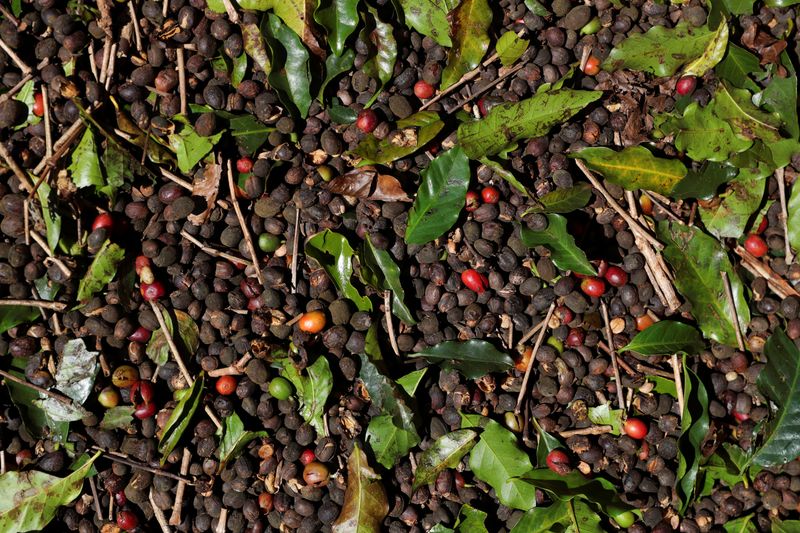Coffee prices at 47-year high on Brazil crop concerns
LONDON (Reuters) - Coffee prices rose on Friday to their highest in nearly half a century, buoyed by tightening supplies as next year's crop in top grower Brazil struggles to recover fully from this year's drought.
Dealers also said some Brazilian farmers have delayed deliveries of this year's crop in the hope of securing even higher prices, leading to short-term supply tightness and large financial losses for traders who had been expecting to receive the coffee.
Arabica coffee futures on the ICE exchange rose by 0.7% to $3.2530 per lb by 1235 GMT, having hit their highest since 1977 at $3.3545.
Prices for arabica coffee have now risen by about 75% this year, making it one of the strongest performing commodities alongside cocoa, for which prices have more than doubled.
"The price trend is now very similar to that of cocoa at the beginning of the year. The reasons are also comparable," Commerzbank (ETR:CBKG ) said in a note on Friday.
"In the case of cocoa, it was poor harvests in the two most important producer countries, Ivory Coast and Ghana. In the case of arabica coffee, it is concern about a poor crop in Brazil, the most important producer country, next year due to drought."
Brazilian coffee traders Atlantica and Cafebras said on Wednesday that they will negotiate with their creditors in court, noting 900,000 60kg bags of coffee promised by farmers have not been received.
The price of robusta coffee, a cheaper bean often used in instant coffee, also rose to its highest in about 47 years on Friday.
Robusta coffee futures on ICE peaked at $5,694 a metric ton on Friday before turning lower to stand 0.45% down at $5,503.
New York cocoa futures on ICE were up 3.9% at $9,420 a ton after setting a five-month high of $9,437.
Cocoa prices soared to a record high of $11,722 a ton in April, with supplies tightened by poor crops in top producers Ivory Coast and Ghana.
London cocoa futures on ICE rose 1.1% to 7,697 pounds a ton.
Sugar prices fell, meanwhile, with March raws down 2.1% at 21.24 cents per lb while March whites lost 0.9% to $550.90 a ton.
Source: Investing.com
